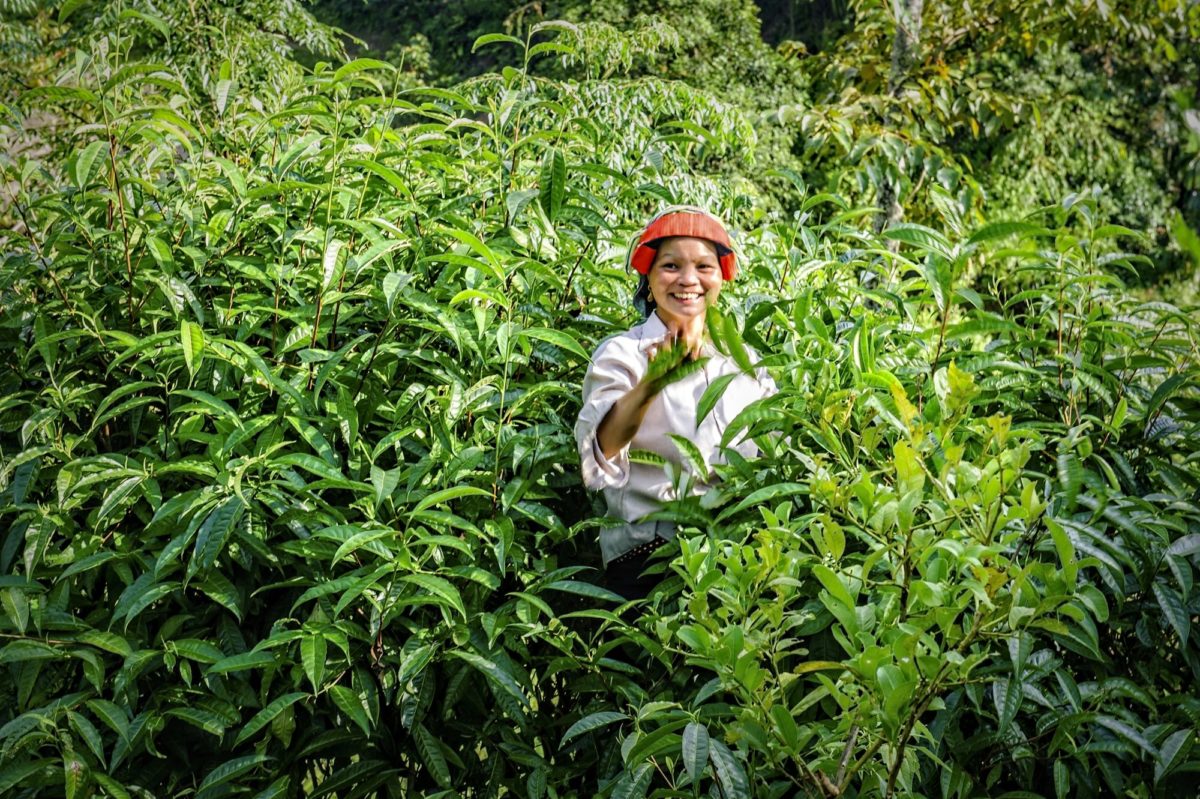
The tea industry runs on the backs of women. Their strong yet nimble fingers pluck the delicate buds from the trees and sort the imperfect from the perfect leaves. Yet, in many tea-producing countries, women are far more likely to live in extreme poverty and have less access to education.
Some people strive to change that narrative by educating, empowering, and enabling women in tea to rise up and bring others with them. This Mother’s Day Tea Journey celebrates the companies and individuals helping make a difference for mothers and female tea workers worldwide.
Adding value enables growth
Kazi Yetu, which means ‘our work’ in Swahili, is a humble tea company that is creating mighty opportunities for women in Tanzania. Founded in 2018 by Tahira Nizari and her husband Hendrik, Kazi Yetu sources single-origin teas from small growers in Tanzania and Rwanda. By processing, blending, and packaging all of their tea in Tanzania, they aim to increase local value addition.
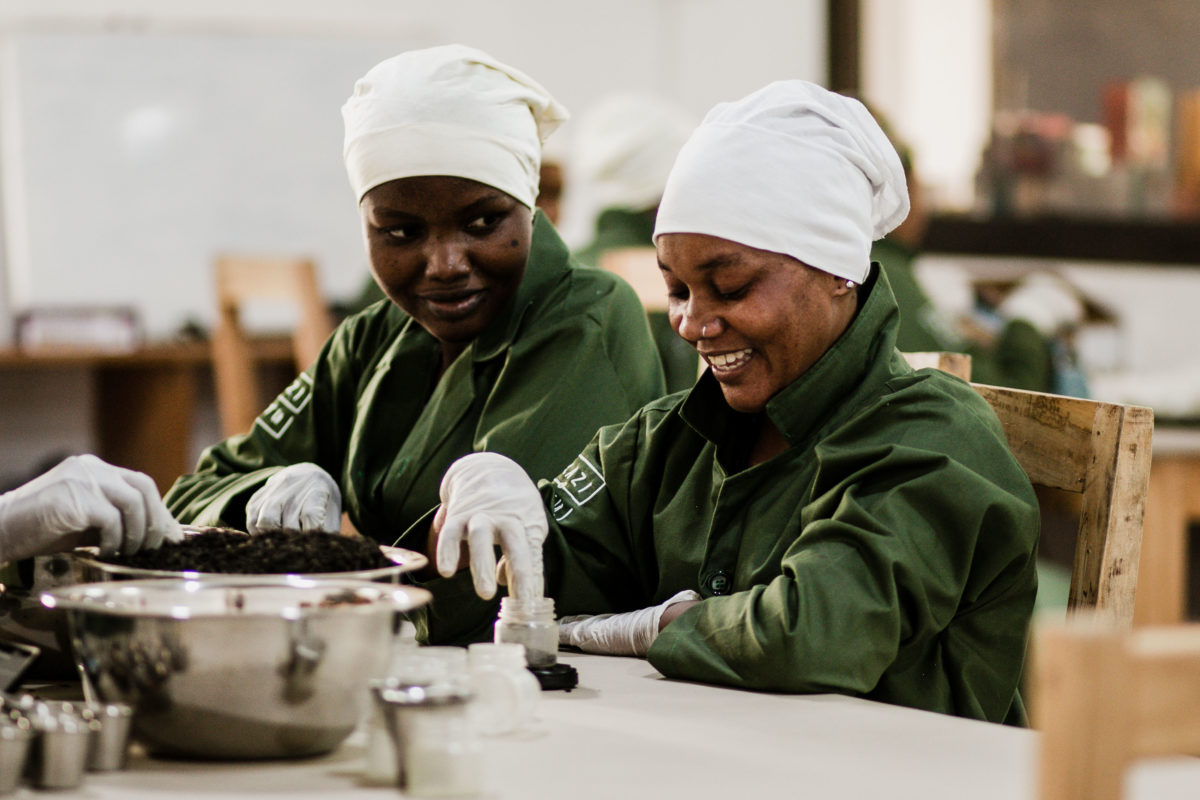
In a conversation with Tahira, she explained why adding value locally is so essential for the women in her community.
“There are many reasons why local value addition is transformational in agriculture. One is that 90% of tea and many other agricultural products from Tanzania are exported in bulk. This means minimal economic gain comes back to the country, and you can only imagine the tiny fraction of that the farmers actually get. So that’s one point of local value addition. The other one is that we’re trying to create new types of jobs for women.”
Not only are they helping the local economy, but they’re also creating jobs for women that would typically go to men. Women operate Kazi Yetu’s solar-powered processing facility in Dar es Salam. “Our entire factory is operated by women. They’re running the machines. They’re fixing the machines. They’re mechanics now! Our factory up north in the Usumbara mountains is an orthodox tea processing factory, again with heavy-duty machinery run by women. So yeah, we’re trying to set a benchmark in Tanzania to demonstrate that women have equal skills and, in fact, more skills in the job market.”

Most of their workers are mothers who now receive a salary around 80% higher than the minimum wage for factory workers set by the government. They also receive additional benefits, such as
- Contribution to national health care
- Paid time off
- A daily food stipend
- Social security
- An annual bonus
- Free English classes
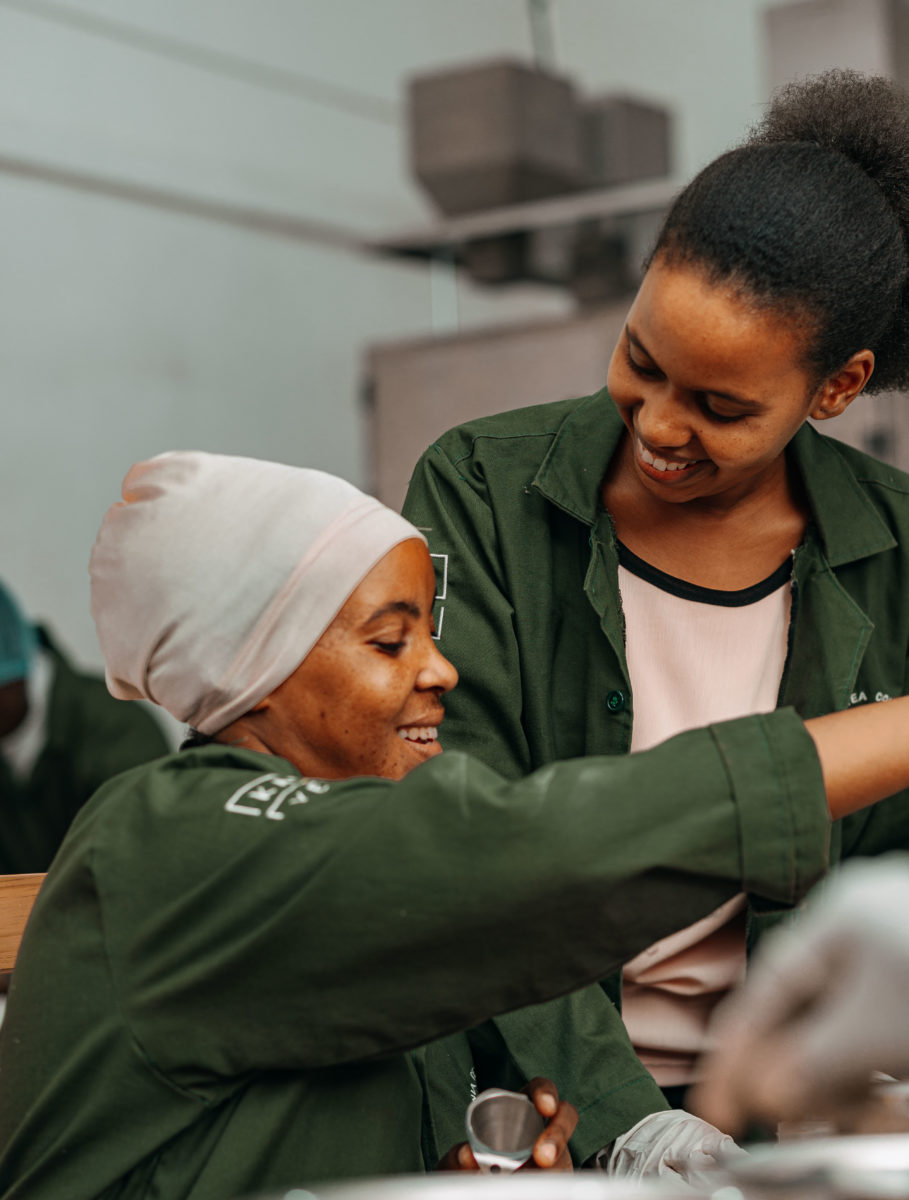
After overhearing their employees talking about a savings group, Tahira and her husband even started offering interest-free loans to the women. “Access to finance in Tanzania is really difficult. Banks are not super accessible and affordable for low-income populations, so savings groups are a really common model in these types of demographics. They usually come together in an informal group, and then they just lend to each other. So we said, let’s get involved in that.”
Kazi Yetu now extends the same types of loans to its farmers and suppliers, helping them purchase solar-powered irrigation drips and driers to improve the quality of their products. They also offer education on sustainable and organic farming methods.
Every aspect of their business is approached in a manner that maximizes empowerment and self-autonomy for their workers and suppliers, proving that thriving communities produce incredible teas.
Kazi Yetu | Hibiscus Star
This vibrant herbal tea from Kazi Yetu makes a beautiful Mother’s Day gift. Hibiscus flowers are full of antioxidants and anti-inflammatory properties. Relaxing and delicious, it can be served hot, made into a refreshing iced tea, or even used to liven up a festive Mother’s Day cocktail. $14 | 20 Pyramid Bags
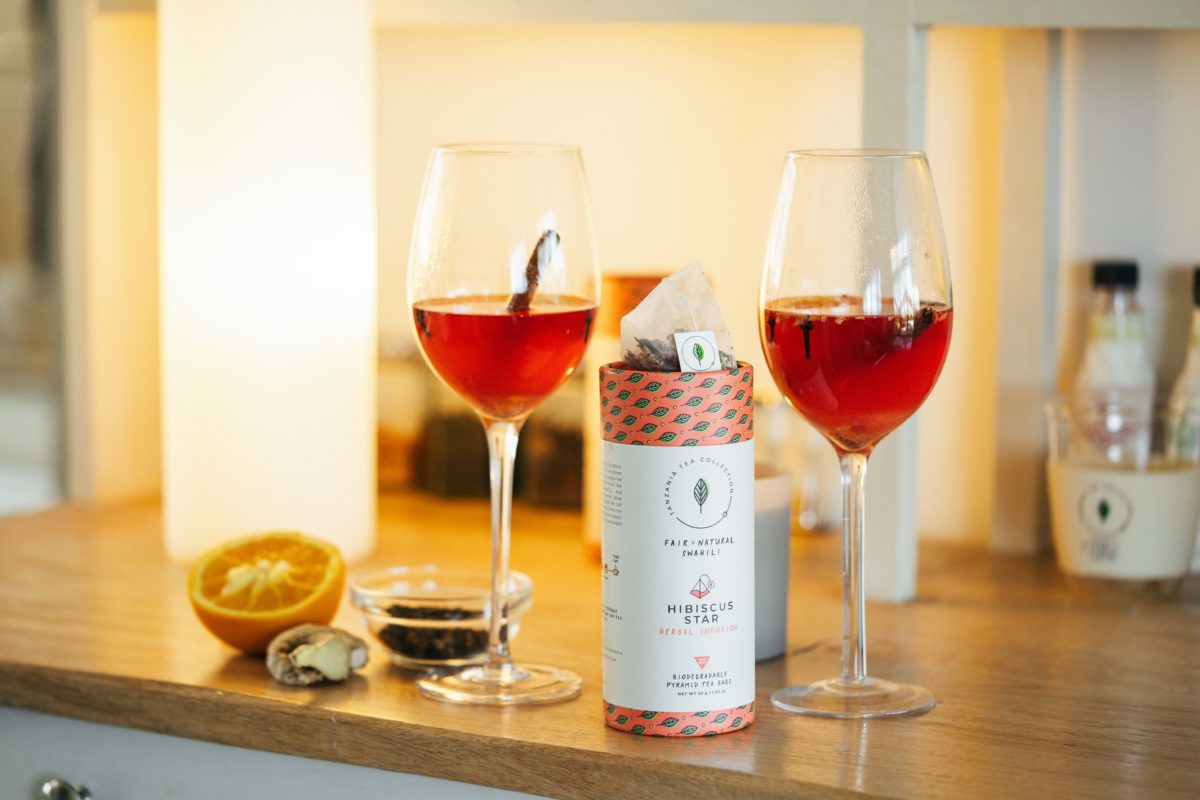
Working together to create better tea
The owners of Hatvala tea shop in Ho Chi Minh City, Nguyen Thu Ngoc and her husband, are determined to change Vietnam’s reputation for industrial-farmed tea. They roam the country searching remote regions for wild or speciality teas that are handpicked and chemical-free.
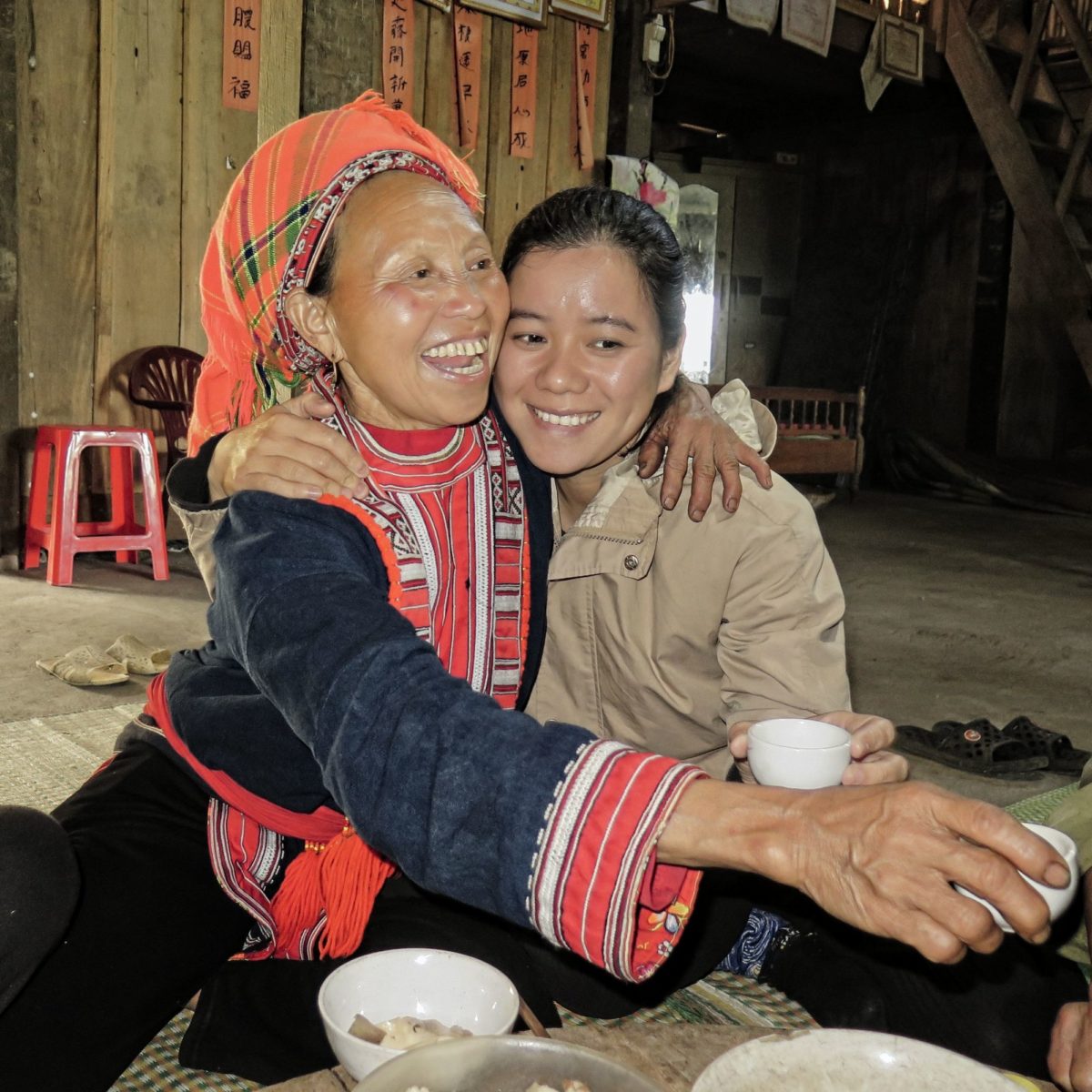
Ngoc taught herself the art of tea production the hard way by spending countless days and nights working side by side with Northern Hill Tribe growers, asking questions, and sharing newfound knowledge from one village to another. I had the chance to speak with Ngoc about what it was like to discover that people were producing such unique teas in Vietnam.
“When I went to the mountains, the tea tree area, it was a different world. It opened our minds. It’s very great to see people, the tribal people, and talk to them. It’s a big opportunity for tea in Vietnam. I think the first time was over 14 or 15 years ago. It’s very different from now. You know the internet has changed everything so quickly. 14 years ago, people only knew one or two wild tea tree areas. Not like now. Now they know 10 or 20 areas. There are so many options. We spent two or three years discovering more and more before Hatvala came about.”

The teas they encountered were unlike any grown on the large farms in the south. They had more pronounced flavor and contained the vital energy of the wild trees. The villages and growing areas are extremely difficult to access, though. Uneven dirt roads and motorbikes are usually the only way in or out.
Each Hill Tribe speaks their own language and has a different way of processing the tea. Ngoc had to learn how to communicate with the villagers or find someone else who spoke Vietnamese. She spends months and sometimes years working alongside the growers to help them improve their tea production before even selling it at Hatvala.
“In Vietnam, there’s no school that teaches you about tea. So I need to work with them. You travel around, go to one area, and meet many people there. You try to meet many people, talk to them, and ask them many questions. And you see how they make tea. They don’t hide it or make it secret. You stay with them. There weren’t a lot of hotels there a long time ago. So you’re open with them, share your stories, and you learn what to do and each step in the process. How long, how hot, why this, why that, why not that. And slowly you learn, like when you see your mother cooking, and you slowly learn.”
Traveling from village to village and mountain to mountain, Ngoc would share different techniques and lessons learned. “You go to one area, visit many houses and many families to get some lessons. You compare the whole lesson there with another area. You find your own way. Some people tell you tips, and you pick them up and tell the others. The good thing is you shouldn’t do everything the same for all tea, for all green tea. Each area, each person, and each artisan has their own way of adding value to be creative and different. That’s what I learn from these people.”
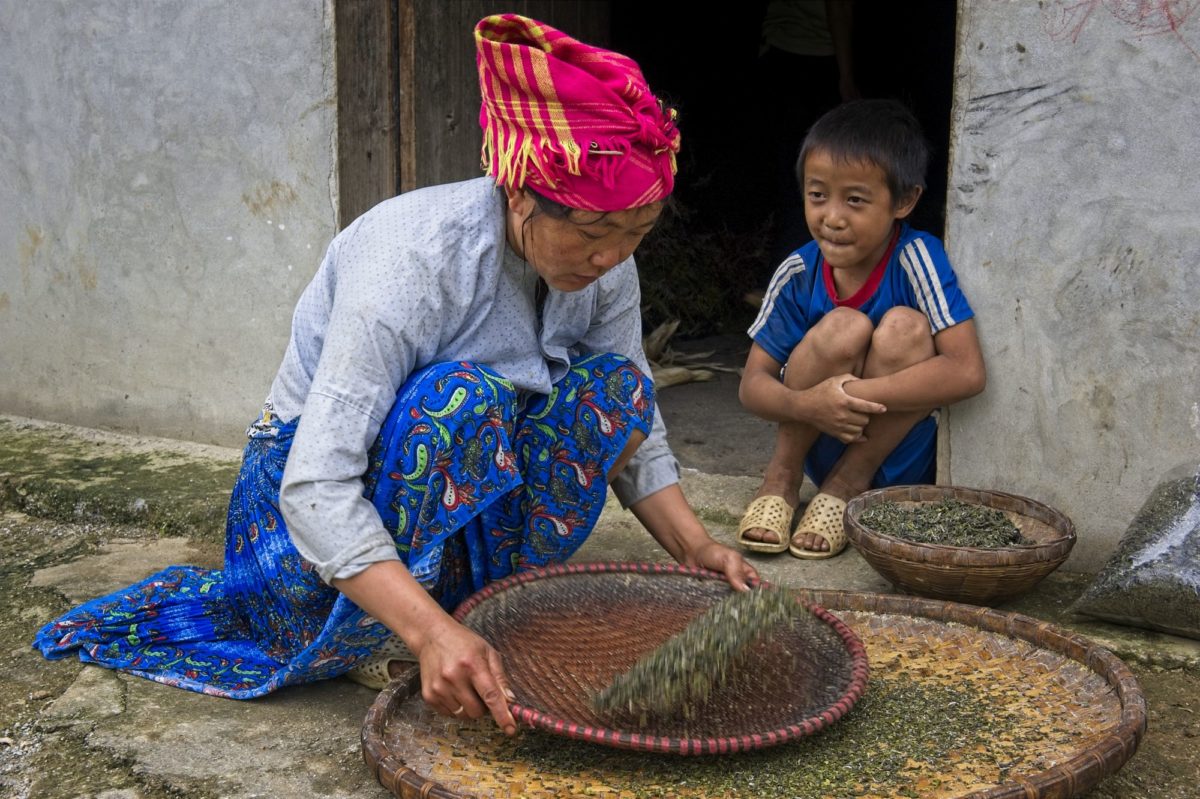
Life is hard for the Northern Hill Tribe people in Vietnam. Villagers used to be at the mercy of buyers who often paid very low prices for raw tea. Thanks to the knowledge shared between the growers and Ngoc, they earn more money for finished tea. Hatvala pays its suppliers fair prices that reflect the care and effort required to make such special tea. They form meaningful business relationships that are built on mutual respect and trust. By doing this, Hatvala is slowly transforming how the rest of the world views Vietnamese teas.
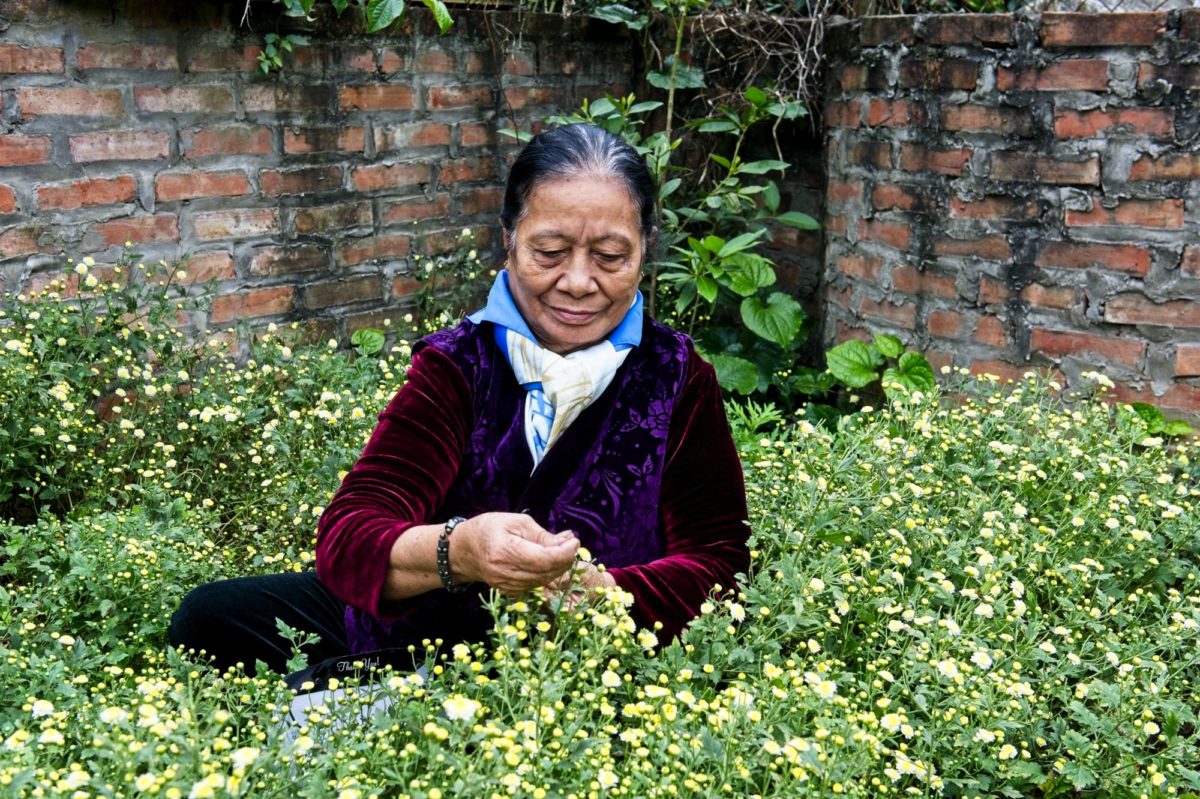
Hatvala | Black Jasmine Tea
This unique Vietnamese tea blends all-natural Jasmine flower blossoms with wild black tea to create a gentle floral brew with sweet, malty overtones. Hatvala’s master flavored tea blender, Ngo, is an incredible woman. Living in Hanoi, Ngo’s made premium floral teas for decades. She’s currently 82 and has no desire to stop practicing her craft. $ 10.49 | 50g Loose Leaf Tea
Giving voice to the underserved

Naoko Tsunoda is passionate about advocating for those who can not speak for themselves. Her story and life’s journey infuse every aspect of her business, creating a heartwarming space where one feels welcome, safe, and inspired. Naoko’s company, Key to Teas, offers a thoughtfully curated selection of carefully crafted premium loose-leaf teas that promote social responsibility.
Naoko enjoys shining a light on places, people, or topics that don’t always get the recognition they deserve, such as teas from Myanmar or an herbal blend that helps new moms breastfeed. I spoke with Naoko about her dedication to advocacy and where that comes from.
“When I launched in 2020, that was my goal. One of the reasons why I wanted to have Mother’s Wish Tea is because I was adopted and I wasn’t breastfed. So, when I had my first child, I was adamant that I would nurse him because it’s like liquid gold. I had a hard time, like a whole month of hard times, and then you reach this pinnacle, where it becomes easier.”
As she struggled with breastfeeding, Naoko also had trouble finding an herbal tea that was good for lactation and tasted delicious at the same time. “In the US, there’s one tea company that has this box of bagged tea for nursing mothers, but it’s unpalatable, unpleasant. So, I reached out to a female friend who is really a pioneer in the tea industry. She’s almost retired now, but she was one of the first American women to own a tea company and blend. So I actually get it from her. She studied the galactagogue benefits and created it.”
Despite having more access to health care and education, many mothers in North America struggle with breastfeeding and suffer from internalized shame and guilt if they’re unable to do it correctly. Naoko experienced this firsthand with her children.
“Ultimately, in the US, it’s a lack of education and absence of a support system. Because generally breastfeeding is taught by older generations. By grandmothers or aunties. Or where you live in that nuclear family household. But in the US it’s singular, you’re cut off. So you learn from one consultant while you’re at the hospital, and like, that’s it. Luckily I gave birth to my two older kids in New York and La Leche League came in, which is a non-profit organization that supports education. It just demystifies everything.”
Sales from her teas also help refugees and orphans. Born to a Vietnamese refugee fleeing the war, Naoko was given up for adoption at birth. Her empathy and compassion for the difficult circumstances that forced her birth mother to make such a harrowing decision have turned her into a champion for refugee rights and empowerment.
She also recognizes that being adopted by a loving family with financial security gave her opportunities in life that she might never have had otherwise. Which ultimately led her to an illustrious career in tea, working her way to the upper echelons of Teavana and Starbucks.
“I was 12 when my adoptive grandmother taught me to steep Japanese green tea. This is really important because a lot of people scald Japanese green tea, and Japanese green tea is known for steaming; hence, you can’t use boiling water. And my mother was a potter, she was a ceramic artist. She would make her own kyūsu tea pots…Which I still have.”
Naoko’s beautiful journey is an inspiration to women everywhere. Key to Teas reflects her passion and allows her to help mothers, refugees, and orphans receive opportunities that would normally be out of reach.
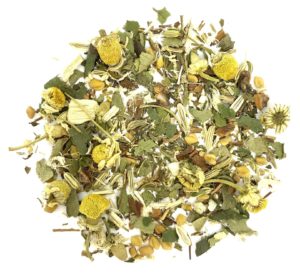
Key To Teas | Mother’s Wish
This soothing herbal blend contains galactagogue-beneficial botanical ingredients such as fenugreek, anise, and fennel, which may help promote lactation. New mothers need all the help they can get, so proceeds from this tea support La Leche League’s efforts to educate and assist breastfeeding women. $ 8.50 | 2oz Loose Leaf Tea
Support women by supporting conscious companies
Kazi Yetu, Hatvala, and Key to Teas are not the only companies working hard to elevate women in the tea industry. Visit our Teas That Care gift guide to discover more brands that assist women and families in tea-producing areas. Supporting conscious companies is one of the easiest ways to make a difference and honor the spirit of Mother’s Day.
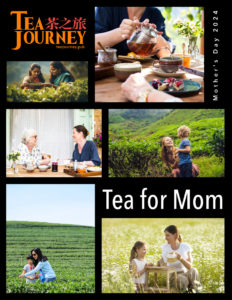
Beautiful way to celebrate Mother’s Day by supporting and highlighting women in tea.